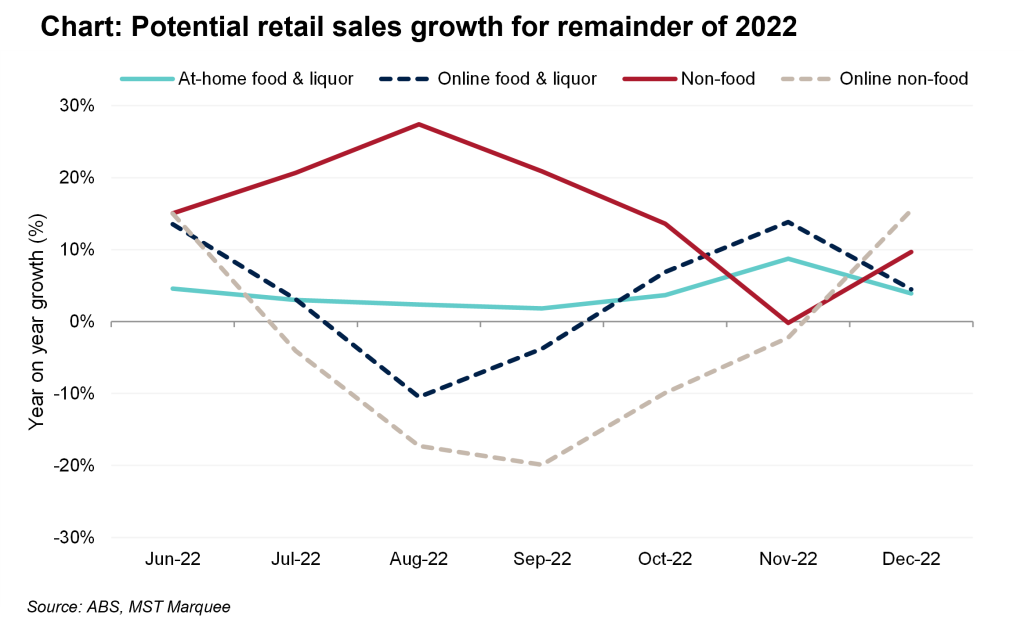Toggle intro on/off
Insights from Amazon's FY24 result
Marketplace consolidation
19 March 2025
Christmas 2024 retail feedback
Santa delivers the goods
07 January 2025
Amazon prefers 3P sales
Online retail poses lower margin risk
08 October 2024
Coles (COL) 1Q24 sales insights
Slowdown triggers cost focus
27 October 2023
Australian retail sales for August 2023
A low point may be near
09 October 2023
Outlook for Black Friday 2022
The rise of November promotions
17 November 2022
Retail sales outlook for remainder of 2022
What to expect over coming months
21 October 2022
Quarterly update: Retail sales forecasts for FY23e
Don’t dismiss the influence of inflation
16 October 2022
Australian supermarkets - The normalisation in supermarkets
Independents holding onto gains
07 September 2022
Retail sales for June 2022
Resilience on display
03 August 2022
Search result for "" — 480 articles found
Not already a member?
Join now to get all the latest reports in full and stay informed.

